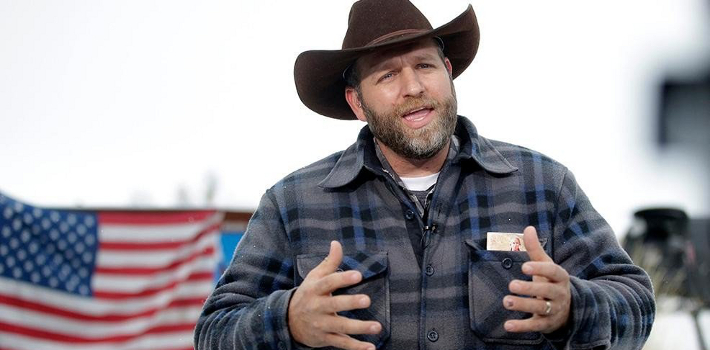
EspañolIn 2012, a US court found Oregon ranchers Dwight Hammond, 73, and Steven Hammond, 46, guilty of committing arson on federal lands. Respectively, the father and son served three months and one year in prison.
Recently, a federal judge deemed the original sentencing insufficient, citing a 1996 law that classified their actions as a form of domestic terrorism, which would require a minimum sentence of five years. On Monday, the Hammonds reported to a federal prison in California to complete their sentence.
In protest of the judge’s harsh sentencing, an armed activist group took control of a building on a national wildlife reserve on January 2 near Burns, Oregon. Many locals initially saw the group’s occupation of the building as a sign of solidarity among fellow ranchers. However, this notion was quickly dispelled when the group’s spokesman, Ammon Bundy, spoke to the media and called the armed standoff a means to contend with what he calls the “unconstitutional management of federal land.”
Bundy is no stranger to armed conflict with the US federal government regarding public lands. In 2014, he participated in the armed standoff led by his father, Nevada rancher Cliven Bundy, when federal agents attempted to confiscate his father’s cattle for illegal grazing on public land.
With the tragedies of Ruby Ridge (1992) and Waco (1994) in mind, federal agents elected to withdraw. As a result, many conservatives and libertarians celebrated the withdrawal as a victory against an overreaching federal government.
They were wrong to do so.
As Charles C.W. Cooke of the National Review pointed out during the 2014 standoff, “this is a nation with a ‘government of laws and not of men’ — and not the other way around — and it seems to me that this principle should not be considered null and void because one of those men happens to have an agreeable tale…”
That same logic applies today. Every conservative and libertarian concurs: the federal government overreaches its mandate with its excesses. And there is no clearer example of this excess than the federal government’s ownership of the vast majority of land in western states (e.g. 84 percent in Nevada). However, that frustration should not be conflated with lawlessness.
The hypocrisy in the libertarian and conservative crowd right now is no different than that of progressives. Conservatives strongly denounced the riots and unlawful protests caused by progressive movements like Black Lives Matter and Occupy, yet have been slow to react to the events in Oregon. Conversely, progressives (and mainstream media) are quick to label today’s events as domestic terrorism, but often justify the illegal actions of those in favor of their policies.
I often listen to conservatives and libertarians talk about “equality under the law.” Had the law been properly applied, Ammon Bundy wouldn’t be standing where he is today, jeopardizing the lives of federal agents and civilians should action be taken.
The more Bundy speaks, the more he and his group of “patriots” remind me of the movements led by progressive activists. Their words are incoherent; their intentions, haphazard; their actions, lawless.
And it’s precisely their lawlessness and lack of clarity that hinders any chance of honest debate about the various causes these movements claim to champion: justice reform, economic inequality, and mismanagement of public lands, among others.
Regardless of your stance on the issue, the tacit approval of unlawful actions by both conservatives and libertarians should be called out for what it is.
 Versión Español
Versión Español












